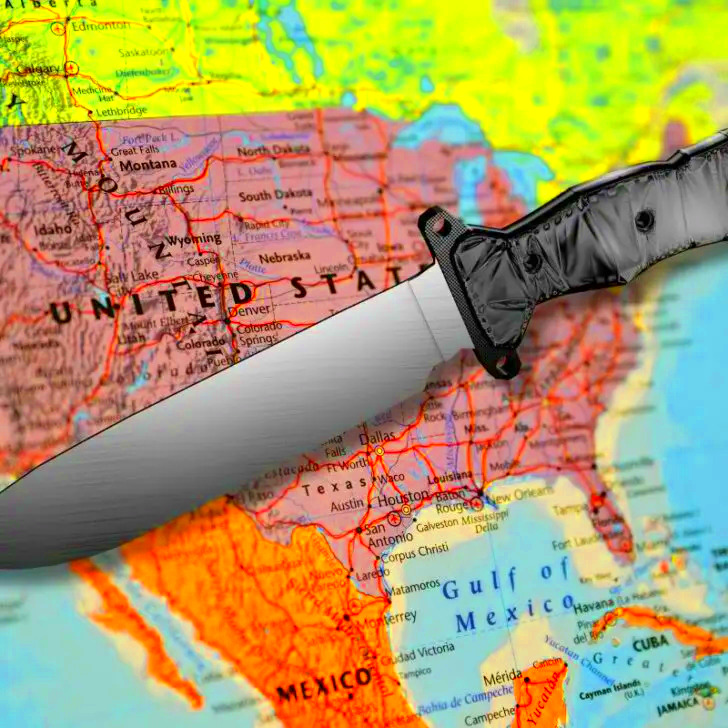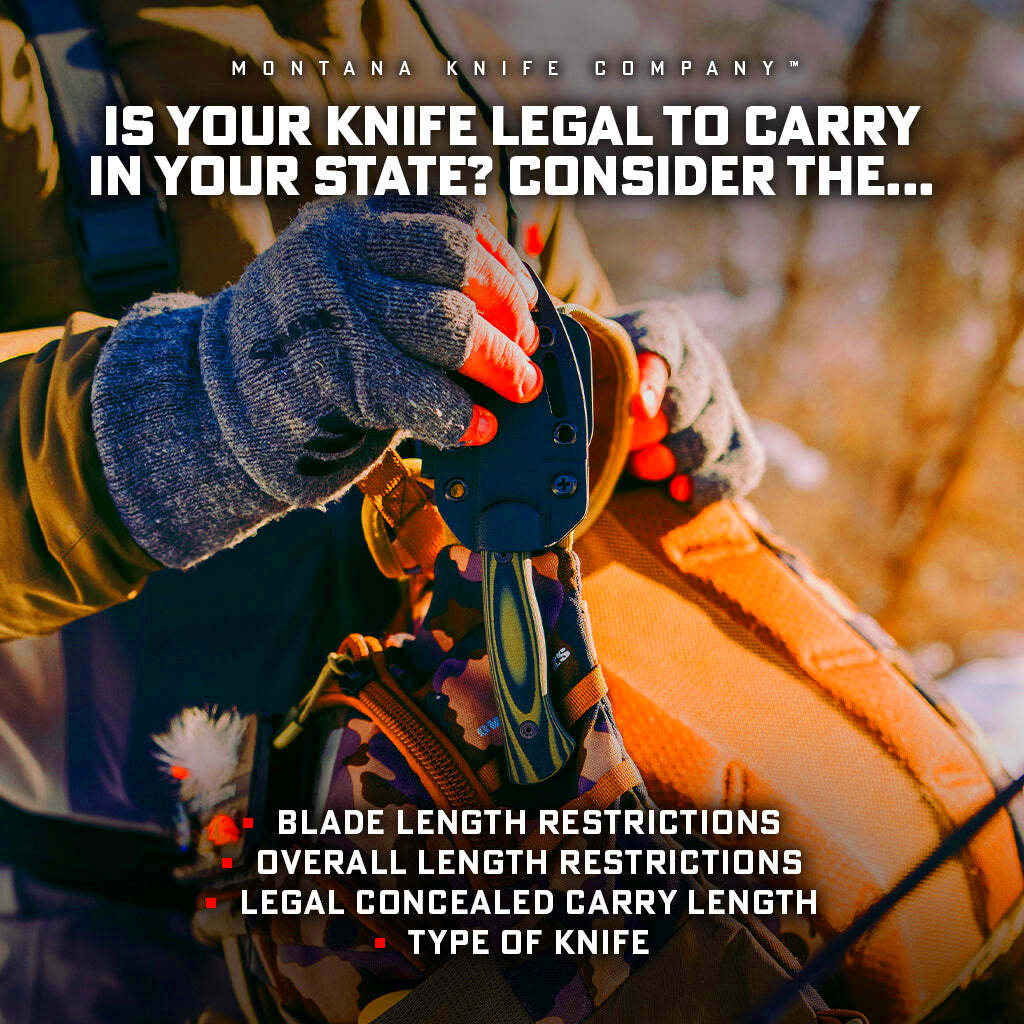What You Need to Know About Knife Laws in Kansas
Understanding knife laws in Kansas is essential for residents and visitors alike. These laws dictate what types of knives you can carry, how you can carry them, and where you can take them. Whether you’re a knife enthusiast, a hunter, or simply someone who wants to be informed, knowing the ins and outs of these laws can help you stay within legal boundaries. In this article, we’ll cover various aspects of knife laws in Kansas, ensuring you’re well-equipped with the information you need.
Definition of Knives Under Kansas Law

In Kansas, the law provides a specific definition of what constitutes a knife. Generally, a knife is recognized as a tool or weapon with a blade that is capable of being used for cutting. The law distinguishes between different types of knives based on their design and intended use. Here’s a breakdown:
- Fixed Blade Knives: These knives have a blade that is fixed to the handle and does not fold. Common examples include hunting knives and survival knives.
- Folding Knives: These knives have a blade that folds into the handle, making them more portable. Pocket knives are a common example.
- Automatic Knives: Also known as switchblades, these knives have a blade that opens automatically when a button is pressed.
- Throwing Knives: Designed specifically for throwing, these knives are often used in sports and competitions.
Understanding these definitions is crucial as they form the basis for determining what is legal to carry in Kansas.
Types of Knives Permitted in Kansas

In Kansas, several types of knives are legally permitted to own and carry, but with specific conditions. Here’s an overview of the types of knives you can carry:
| Type of Knife | Legality | Notes |
|---|---|---|
| Fixed Blade Knives | Legal | Must be sheathed; no length restrictions. |
| Folding Knives | Legal | Blade length may be limited in some localities. |
| Automatic Knives | Legal | Considered legal unless restricted by local ordinances. |
| Throwing Knives | Legal | Permitted for sporting purposes. |
| Dirks and Dagger Knives | Legal | Considered weapons; carry restrictions may apply. |
Always check local laws, as some cities may impose additional restrictions on the carry and ownership of certain types of knives. Staying informed helps ensure you’re compliant and can avoid any legal issues.
Restrictions on Knife Carrying in Kansas

While many types of knives are legal to carry in Kansas, there are specific restrictions to keep in mind. These rules are designed to ensure public safety and can vary by location. Here are some important restrictions to consider:
- Prohibited Locations: Knives are generally not allowed in certain places such as schools, government buildings, and private property where prohibited. Always look for signs indicating restrictions.
- Length Restrictions: Some cities have specific laws regarding the maximum blade length for knives carried in public. For example, a knife with a blade longer than 4 inches may be subject to additional scrutiny.
- Automatic Knives: While legal, the carrying of automatic knives may be regulated. Local laws might impose restrictions on their use, particularly in crowded or sensitive areas.
- Intent: Carrying a knife with the intent to use it as a weapon can lead to legal issues. If a knife is deemed to be carried for unlawful purposes, you could face charges.
Always research local ordinances before carrying a knife in public. What’s legal in one area may not be in another, so it’s better to be informed and avoid potential trouble.
Legal Consequences of Violating Knife Laws
Violating knife laws in Kansas can lead to serious legal consequences. Depending on the nature of the violation, penalties can range from minor fines to felony charges. Here’s what you might face:
- Misdemeanor Charges: Carrying a knife in a prohibited area or exceeding blade length limits may result in a misdemeanor charge. This can come with fines, community service, or even short jail time.
- Felony Charges: If a knife is used in the commission of a crime, such as assault or robbery, the charges can escalate to felonies. This can lead to significant jail time and a permanent criminal record.
- Fines: Fines for violating knife laws can vary widely. In some cases, they may be as low as $50 for minor violations, while serious offenses can incur fines in the thousands.
- Confiscation: Law enforcement officers have the authority to confiscate knives that are carried unlawfully. This means you could lose your property and face additional penalties.
To avoid these consequences, it’s crucial to understand and adhere to Kansas knife laws. Staying informed can save you from a lot of hassle.
Differences Between Concealed and Open Carrying
In Kansas, how you carry your knife—whether openly or concealed—can have different legal implications. Understanding these differences is vital for staying compliant with the law. Here’s a breakdown:
- Open Carrying: This means carrying your knife in a visible manner. Open carry is generally allowed for most types of knives, but be mindful of your surroundings. Even if open carry is legal, it might attract unwanted attention.
- Concealed Carrying: This refers to carrying a knife hidden from view. Kansas law permits concealed carry for many types of knives, but some restrictions apply. It’s important to ensure that the knife is not easily accessible for unlawful use.
- Legal Differences: Some cities may have specific laws regarding concealed carry that differ from open carry. For instance, carrying a large fixed-blade knife concealed may not be allowed, whereas it can be carried openly.
- Permits: Unlike firearms, Kansas does not require a permit for knife carrying. However, being knowledgeable about the differences in carrying styles is still crucial for compliance.
Understanding these distinctions can help you navigate knife laws more effectively. Always remember to stay aware of local regulations, as they can vary significantly across the state.
Exceptions to Knife Laws in Kansas
While Kansas has established various knife laws, there are exceptions that can affect how these regulations apply to certain individuals or situations. Knowing these exceptions can help you navigate the legal landscape more effectively. Here are some key exceptions to keep in mind:
- Law Enforcement Officers: Police and other law enforcement personnel may carry knives that are typically restricted for civilians, especially during the course of their duties.
- Military Personnel: Active-duty military members often have different rights regarding knife possession and carrying due to their service, especially when on duty.
- Hunting and Fishing: Knives used for hunting or fishing purposes are generally exempt from certain restrictions. However, they must be used in accordance with regulations related to those activities.
- Private Property Owners: Property owners can set their own rules regarding knife carrying on their premises. If you have permission, you may be able to carry a knife that would otherwise be restricted in public areas.
While these exceptions exist, it’s essential to be cautious. Just because an exception applies doesn’t mean you’re automatically in the clear. Always make sure to confirm the specifics of the law or seek legal advice if you’re unsure.
Resources for Understanding Knife Laws
Understanding knife laws can be complex, but there are several resources available to help you stay informed. Here’s a list of useful resources where you can find accurate and up-to-date information:
- Kansas Statutes: The official state statutes can be accessed online. They provide comprehensive legal information regarding knife laws and related topics.
- Local Government Websites: Many cities in Kansas have their own ordinances regarding knives. Check your local government’s website for specific rules that may apply in your area.
- Legal Aid Organizations: Non-profit organizations often provide free legal resources and advice. They can help clarify any confusion about knife laws.
- Online Forums and Communities: Websites like Reddit or local Facebook groups can offer personal experiences and insights from fellow residents who understand the laws.
- Consulting an Attorney: If you’re serious about understanding knife laws, consulting with a legal professional can provide tailored guidance based on your situation.
Using these resources can help you become more informed and confident when navigating knife laws in Kansas.
Frequently Asked Questions
When it comes to knife laws in Kansas, many people have similar questions. Here are some frequently asked questions that can help clarify common concerns:
- What types of knives are illegal in Kansas?
Knives like switchblades and ballistic knives are generally restricted, but it’s essential to check local laws as they can vary. - Can I carry a knife in my car?
Yes, you can carry a knife in your vehicle, but make sure it’s not readily accessible for unlawful use. - Are there age restrictions for carrying knives?
While there are no specific age restrictions at the state level, minors may face additional scrutiny, especially in certain locations. - Do I need a permit to carry a knife?
No, Kansas does not require a permit for carrying knives, but always check local regulations for any additional requirements. - What should I do if I’m stopped by law enforcement while carrying a knife?
Stay calm, follow the officer’s instructions, and inform them that you are carrying a knife. Being respectful can often help de-escalate the situation.
These FAQs can help clear up some common uncertainties surrounding knife laws in Kansas. Always stay informed and proactive about understanding your rights and responsibilities.
Conclusion
Understanding knife laws in Kansas is crucial for anyone who carries a knife, whether for work, recreation, or personal use. The state has a range of laws and regulations, including definitions, permitted types of knives, carrying restrictions, and legal consequences for violations. While there are exceptions that may apply to certain individuals, such as law enforcement and military personnel, it’s essential to stay informed about both state and local laws. Resources like state statutes, legal aid organizations, and local government websites can provide valuable information. By being knowledgeable about knife laws, you can confidently navigate your rights and responsibilities, ensuring that you stay within legal boundaries while enjoying your passion for knives.


